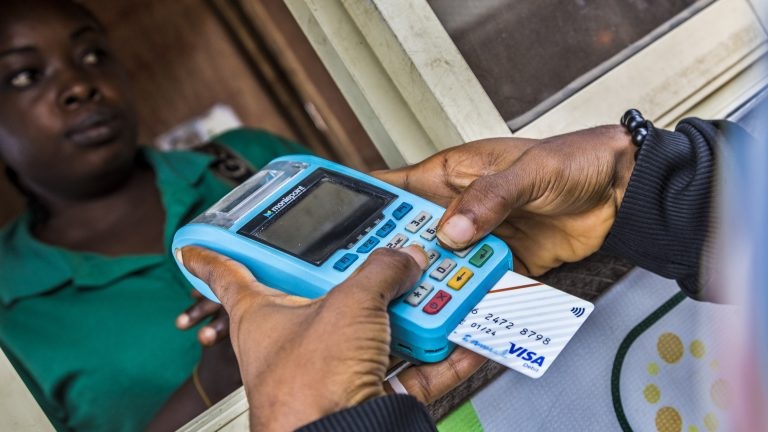
Nigeria’s electronic payment sector recorded a historic milestone in 2024, as total transactions on the Nigeria Inter-Bank Settlement System (NIBSS) Instant Payment (NIP) platform soared to N1.07 quadrillion.
This marks the first time the country’s e-payment transactions have crossed the quadrillion-naira threshold, reflecting the increasing adoption of digital payments across all sectors of the economy.
At an exchange rate of N1,535/$1 as of December 31, 2024, this transaction value equates to approximately $702.6 billion, underscoring Nigeria’s growing reliance on digital financial services.
Register for Tekedia Mini-MBA edition 17 (June 9 – Sept 6, 2025) today for early bird discounts. Do annual for access to Blucera.com.
Tekedia AI in Business Masterclass opens registrations.
Join Tekedia Capital Syndicate and co-invest in great global startups.
Register to become a better CEO or Director with Tekedia CEO & Director Program.
The latest data from NIBSS reveals that the N1.07 quadrillion recorded in 2024 represents a remarkable 79.6% increase from the N600 trillion recorded in 2023. This surge highlights a significant shift towards electronic payments, fueled by factors such as the Central Bank of Nigeria’s (CBN) cashless policy, persistent cash shortages, and increased financial inclusion efforts.
While e-payment volumes grew steadily throughout the year, December 2024 stood out with a record-breaking N115.1 trillion in transactions—the highest monthly total ever recorded on the NIBSS platform. This spike was attributed to the festive season, as Nigerians spent heavily via electronic channels for holiday shopping, travel, and entertainment.
Beyond the value of transactions, the volume of electronic payments also experienced significant growth. In 2024, NIBSS processed 11.2 billion transactions, up from 9.7 billion in 2023, representing a 15.5% increase year-on-year. This surge indicates that not only are more Nigerians embracing e-payments, but they are also conducting more frequent digital transactions.
Analysts believe that the persistent scarcity of physical cash, coupled with the CBN’s withdrawal limits, has been a key driver of e-payment adoption. The CBN’s revised cashless policy, which took effect on January 9, 2023, set strict limits on cash withdrawals. Individuals can withdraw a maximum of N500,000 per week, while corporate organizations have a limit of N5 million per week.
Although intended to promote financial inclusion and curb illicit cash transactions, the policy forced many Nigerians to explore alternative payment methods such as mobile banking, USSD, and PoS transactions.
A Lagos-based financial analyst, Adewale Adeoye, noted that the non-availability of cash in banks has pushed more Nigerians to rely on digital payment options. He explained that electronic transactions are expected to continue rising since banks are not releasing cash as freely as before.
Aside from the CBN withdrawal limit, he pointed out that customers walking into a bank today might be told that they can’t withdraw more than N5,000 over the counter. This leaves many Nigerians with no choice but to use ATMs, which are often out of cash, or to turn to PoS operators and mobile transfers.
With the surge in electronic transactions, the federal government is also benefiting significantly through increased revenue from the Electronic Money Transfer Levy (EMTL). The EMTL was originally introduced in the Finance Act of 2020 but was expanded in 2023 to include fintech platforms, broadening its scope and increasing its revenue-generating potential. The Federal Inland Revenue Service (FIRS) directed all financial institutions, including banks and fintech companies, to deduct N50 on all electronic transfers of N10,000 and above starting from September 9, 2024.
Between January and August 2024, Nigerian bank customers paid N133.89 billion in EMTL. Given the record volume of transactions in the latter part of the year, government revenue from the levy is expected to rise even further.
The increased adoption of digital payments means that as more transactions shift away from cash to electronic channels, the government is set to generate more revenue through this levy. This development aligns with efforts to improve tax collection efficiency and boost non-oil revenue, particularly as Nigeria continues to face fiscal challenges.
The NIBSS Instant Payments (NIP) system, introduced in 2011, has played a critical role in Nigeria’s transition to a cashless economy. The platform enables real-time inter-bank transfers and has been widely integrated across banking channels, including Internet banking, mobile apps, USSD banking, PoS terminals, and ATMs.
With more financial institutions and fintech firms leveraging NIP, the system has enhanced the efficiency and reliability of Nigeria’s digital payment infrastructure.
Nigeria’s digital payment revolution appears irreversible, as an increasing number of consumers get accustomed to cashless transactions. Despite initial resistance to electronic payments, particularly among older generations and rural populations, the necessity created by cash shortages has fast-tracked the adoption of digital payment methods.
Industry observers expect this trend to continue in 2025 and beyond, especially as the CBN doubles down on its cashless policy and fintech innovations make digital transactions even more seamless.
With electronic payments now accounting for trillions of naira in transactions every month, Nigeria is well on its way to achieving a fully digital financial ecosystem—a development that could boost financial inclusion, reduce corruption, and enhance economic efficiency in the long run.



